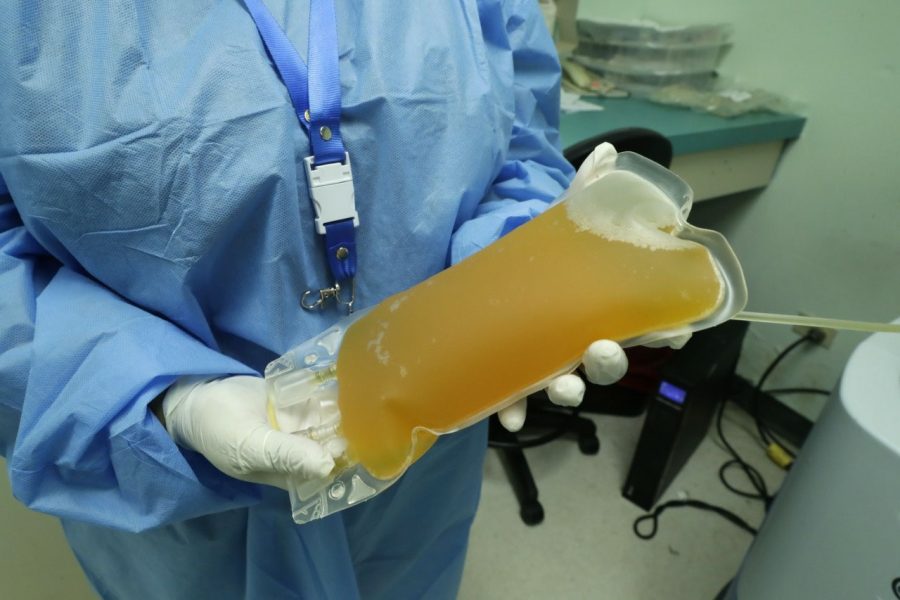TRANSFUSIONS of plasma from
people who have recovered from
Covid-19, the illness that SARS-CoV-2 causes, appear to be safe for severely ill patients and may speed their recovery, according to a preliminary study.
A new study has concluded that convalescent plasma therapy for Covid-19 is safe. For more than 100 years, doctors have used convalescent plasma (a component of blood) from people who survived life threatening infections to treat others. The idea is that antibodies against a bacterium or virus remain in the blood of someone who has recently recovered from the infection.
Doctors used convalescent plasma as a treatment during the 1918 Spanish flu pandemic and had varying degrees of success with it during the 2003 SARS outbreak, the 2009 swine flu (H1N1) outbreak, and the 2014 Ebola outbreak in Africa. In 2015, scientists established this treatment as the protocol for Middle East respiratory syndrome (MERS).
Early in the Covid-19 outbreak, on January 20, 2020, doctors in China began treating severely ill patients with convalescent plasma. They reported encouraging results from five cases in the journal JAMA.
On March 28, 2020, Houston Methodist Hospital in Texas became the first academic medical center in the United States to treat critically ill Covid-19 patients with convalescent plasma.
“While physician scientists around the world scrambled to test new drugs and treatments against the Covid-19 virus, convalescent serum therapy emerged as potentially one of the most promising strategies,” says Dr. James M. Musser, chair of the Department of Pathology and Genomic Medicine at Houston Methodist.
HOW THE BRAIN BALANCES FEELINGS OF STRESS AND CALM: Two regions of the brain play pivotal roles in the experience of stress and the restoration of calm, an imaging study has discovered.
A new study delves deeper into how the brain maintains a balance between feelings of stress and calm. The effects of stress on the mind and body, such as heightened alertness and a rapid heartbeat, are a mixed blessing for modern humans.
In our distant evolutionary past, the stress of encountering a hungry predator or squaring up to a rival helped to keep us alive. In the modern world, however, the immediate psychological and physiological effects of stress in situations, such as an exam, a job interview, or a first date, can be counterproductive.










